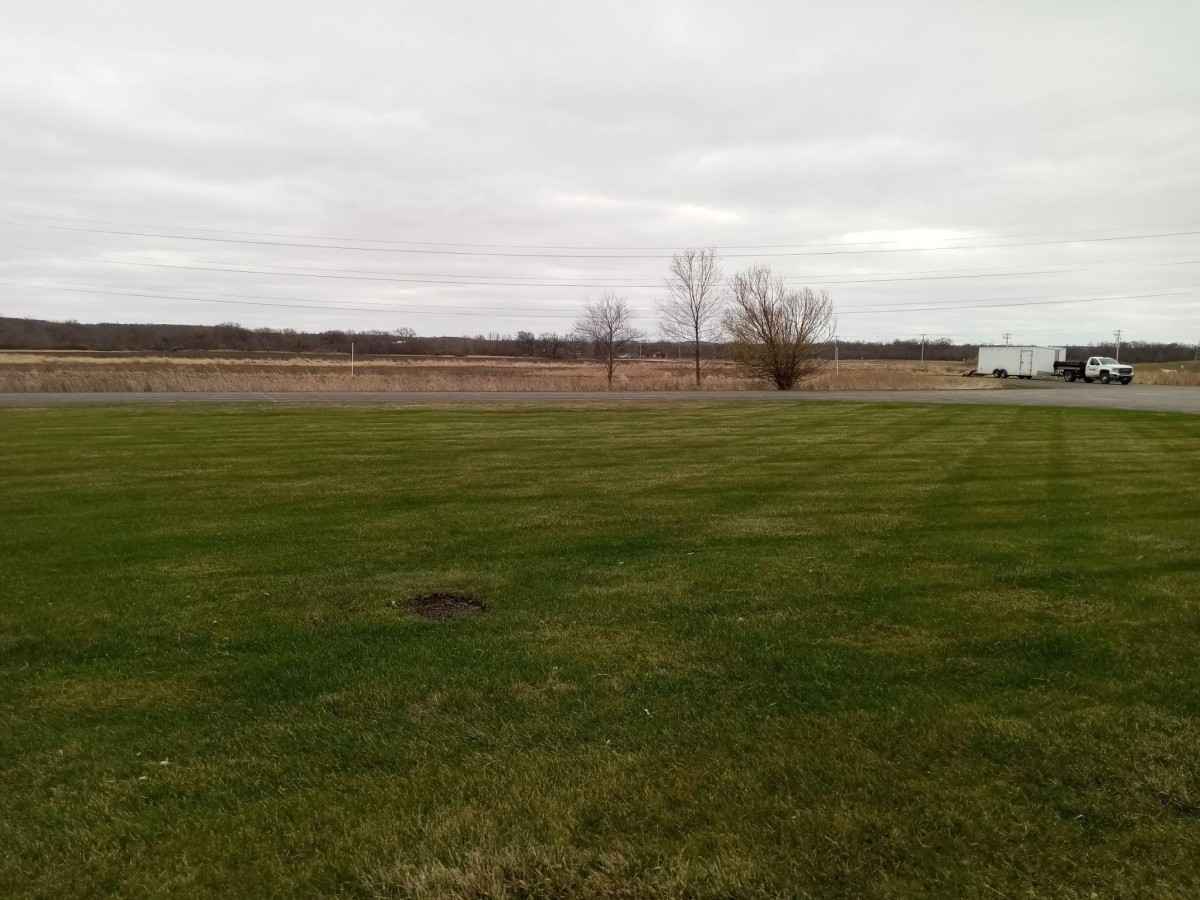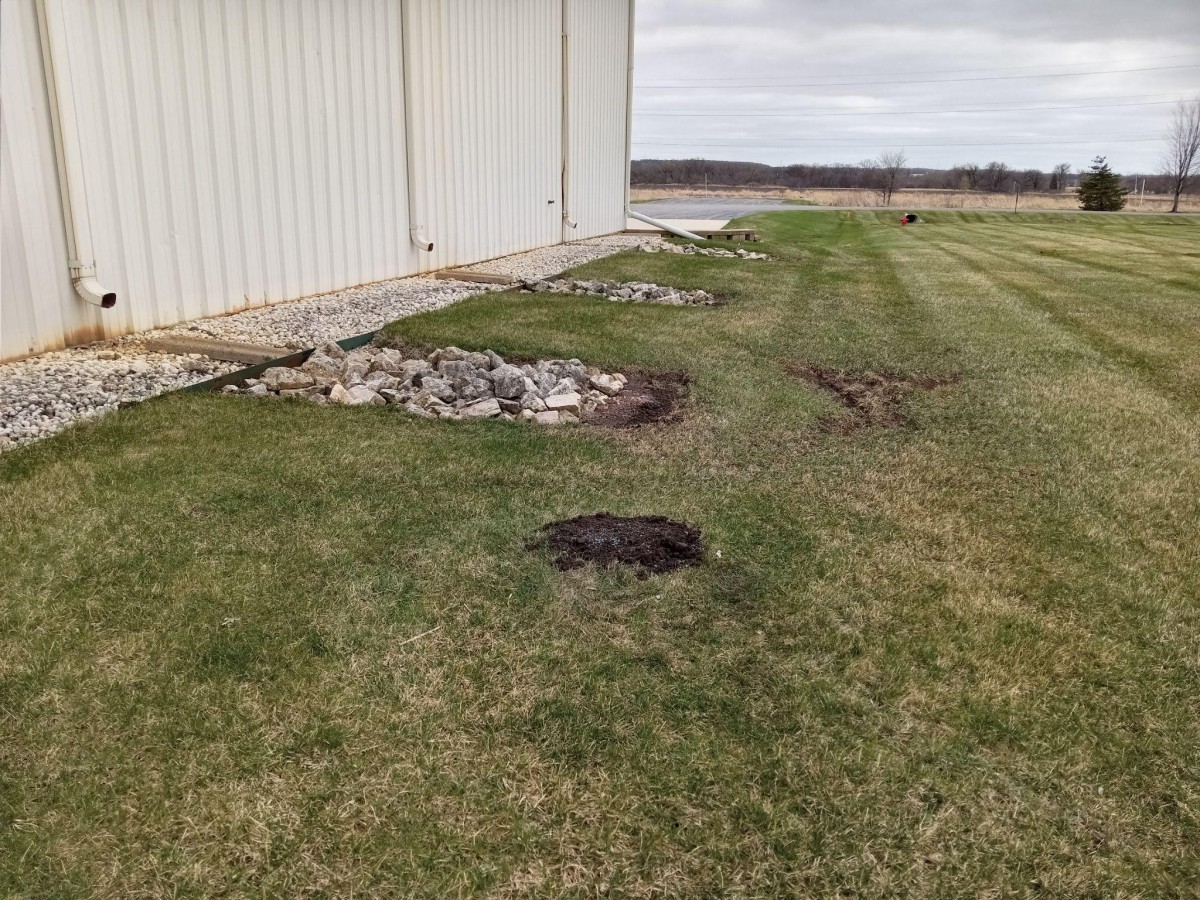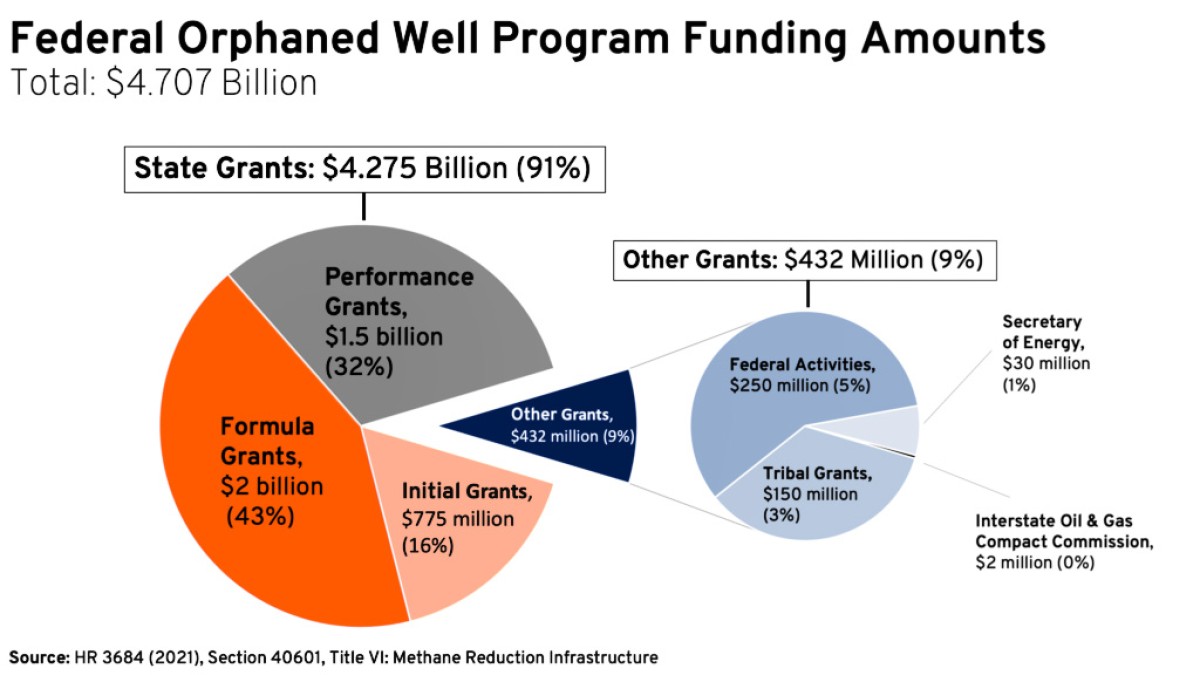Orphaned wells projects get boost from federal grants
The phrase "orphaned wells" describes approximately 3.5 million oil or gas wells abandoned by fossil fuel organizations across the U.S. Disconnected because of viability, bankruptcy or neglect, these wells have no legal owners, operators or responsible parties to plug and restore them.
Orphaned wells pose serious threats to human and environmental health. Often unsealed, they leach toxic chemicals that pollute community spaces and contaminate groundwater. Many unplugged wells also spew methane, among other harmful gasses. Beyond a personal hazard, methane is a potent greenhouse gas and a major cause of climate change. As deserted oilfield equipment degrades and rusts, it further reduces the usability of former well sites for local communities.
Below, we discuss federal funding available under the Bipartisan Infrastructure Law and why you need an environmental expert to determine the best course for plugging orphaned wells in and around your community.
Orphaned wells get federal assistance
In 2019, abandoned wells accounted for fugitive methane emissions equivalent to a thermal energy value of 284 kilotons. When compared to carbon dioxide, this number becomes more alarming: Methane is 25 times more powerful at trapping heat in the Earth's atmosphere. The millions of Americans living within a mile of disused oil and gas wells compounds this climactic crisis and imparts a personal sense of urgency to plug orphaned wells.
On Nov. 15, 2021, President Joe Biden signed the Bipartisan Infrastructure Law and empowered the Department of the Interior (DOI) with $4.7 billion to address the nation's orphaned well problem. Of that amount, the Bipartisan Infrastructure Law provides states with $2 billion to plug and remediate orphaned well sites. The first funding cycle was complete by August 2022, with $560 million in state awards to begin remediating 10,000 high-priority sites. The DOI said Illinois, Texas, Oklahoma, Kansas, Kentucky, West Virginia, New York and Pennsylvania have the highest number of orphaned wells.
So far, more than 129,000 orphaned wells have been identified for state remediation. As more orphaned wells are identified on state and private lands, Bipartisan Infrastructure Law funding will become available for further records research and data collection, site inspections, and improved well location techniques and field equipment. Federal funding for plugging orphaned wells is grouped into several categories:
Initial Grants
Initial state grants totaling $560 million, with individual disbursements of $5 million or $25 million, were awarded to 24 states in August 2022. State proposals for this initial funding included setting up methane measuring capacity, prioritizing capping abandoned wells in disadvantaged communities, and prioritizing job creation and small business contractors through state-specific contracting processes. The wells plugged under initial grant funding were identified based on depth, remoteness, previous site activities, site conditions and legacy contracts.
Illinois was among the 24 Initial Grants state recipients. With about 600 to 800 documented orphaned wells throughout the state, Illinois was awarded an Initial Grant of $25 million to begin plugging high-priority sites. Goals also included increasing the state's well-plugging capacity by purchasing safety equipment and implementing advanced techniques and tools to plug documented wells and locate those yet undocumented.
Formula Grants
The Bipartisan Infrastructure Law provides $2 billion for state formula grants. While Initial Grants were designed to help states start work immediately on high-priority sites and design orphaned well-plugging programs, formula grants are long-term funds awarded on a revolving cycle to reduce the orphaned well inventories in qualifying states. Under formula grants, state funding is determined by factors like the total number of documented orphaned wells, the cost of plugging, the number of jobs created by cleanup projects and others.
Performance Grants
Performance grants worth $1.5 billion are another way to incentivize states to take environmentally and fiscally positive actions toward plugging orphaned wells. These discretionary grants reward states for improving laws and regulations on plugging procedures or for reducing the burden of orphaned wells. Qualifying states can receive up to two, $20 million Performance Grants.
Plugging orphaned wells is extensive work that requires funds and expertise. For states and concerned municipalities, partnering with an environmental expert helps to navigate through the process.
Partnering with an environmental expert to determine the best course of action
The Fehr Graham team of highly experienced environmental engineers and licensed contractors have the expertise and the knowledge to remediate sites contaminated with petroleum, volatile organic compounds, lead, methane and others. We understand the funding and engineering challenges of orphaned wells discovered while redeveloping a brownfield site. Under such scenarios, municipalities need to increase funding stacks with state and federal sources, along with brownfield funds and construction work to successfully plug orphaned wells.
At Fehr Graham, we provide end-to-end assistance beyond the standard engineering and environmental services. From conducting Environmental Site Assessments, cleanup program coordination and remediation plan development to funding identification and management, we are a one-stop solution for all your land redevelopment concerns. We ensure successful redevelopment project outcomes by helping municipal leaders navigate brownfield funds, site cleanup and construction, and fortifying funding stacks with federal assistance for plugging orphaned wells.
To learn more about federal assistance for plugging orphaned wells contact us or give us a call at 815.235.7643.
 |
Fehr Graham Senior Community Development Specialist Bridgette Stocks serves
as the principal contact for all funding-related programs, navigating complicated rules and regulations to
secure maximum dollars. She is a vital partner when it comes to strengthening communities to provide
resilient and critical infrastructure. Her success speaks for itself – she has secured more than $200
million for Fehr Graham clients. She can be reached at |
Collaborative, Insightful, Results-Driven Solutions
Fehr Graham provides innovative engineering and environmental solutions to help improve the lives and communities of our customers.



